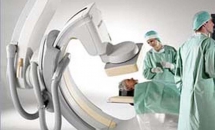We surgeons need to constantly evolve to be able to offer the best and most innovative care to our patients, with one sole objective: their well-being. However, what does well-being mean? It means providing patients with a treatment that is effective, with a minimum of pain, a minimum of complications, a prompt return to their daily activities and with suitable aesthetic results. Until now, it seemed as if we had achieved these objectives with laparoscopic surgery, but when randomised studies began to show similar and even better long-term results from laparoscopic surgery compared to conventional techniques, we surgeons pushed things a step further and invented NOTES, with the aim of offering our patients that much-sought-after well-being.
NOTES (an acronym for “Natural Orifice Transluminal Endoscopic Surgery”) means that surgical procedures are carried out through natural orifices. However, beyond the technical complexities that this involves, NOTES represents a change of thinking based on several points:
– Conventional laparoscopic surgery, which many people considered to be unsurpassable, can be improved on: we can use smaller keyholes, mini-incisions, single keyholes...
– Access to the abdominal cavity through routes that have been previously unthinkable now (such as through the stomach or the vagina) is possible.
– The surgeon depends not only on his/her surgical skill, but also on the technological advances, and this means that the engineer becomes another member of the team.
This change of thinking means that surgeons can dream that, with sufficient technological assistance, this ideal of well-being that we seek for our patients is now closer at hand.
Cycle: Challenges of the 21st Century, IV the Voice of Medicine, I
Organized by: Residence for Researchers, Fundació Clínic Barcelona, Institut Biomèdiques August Pi i Sunyer, Resa
